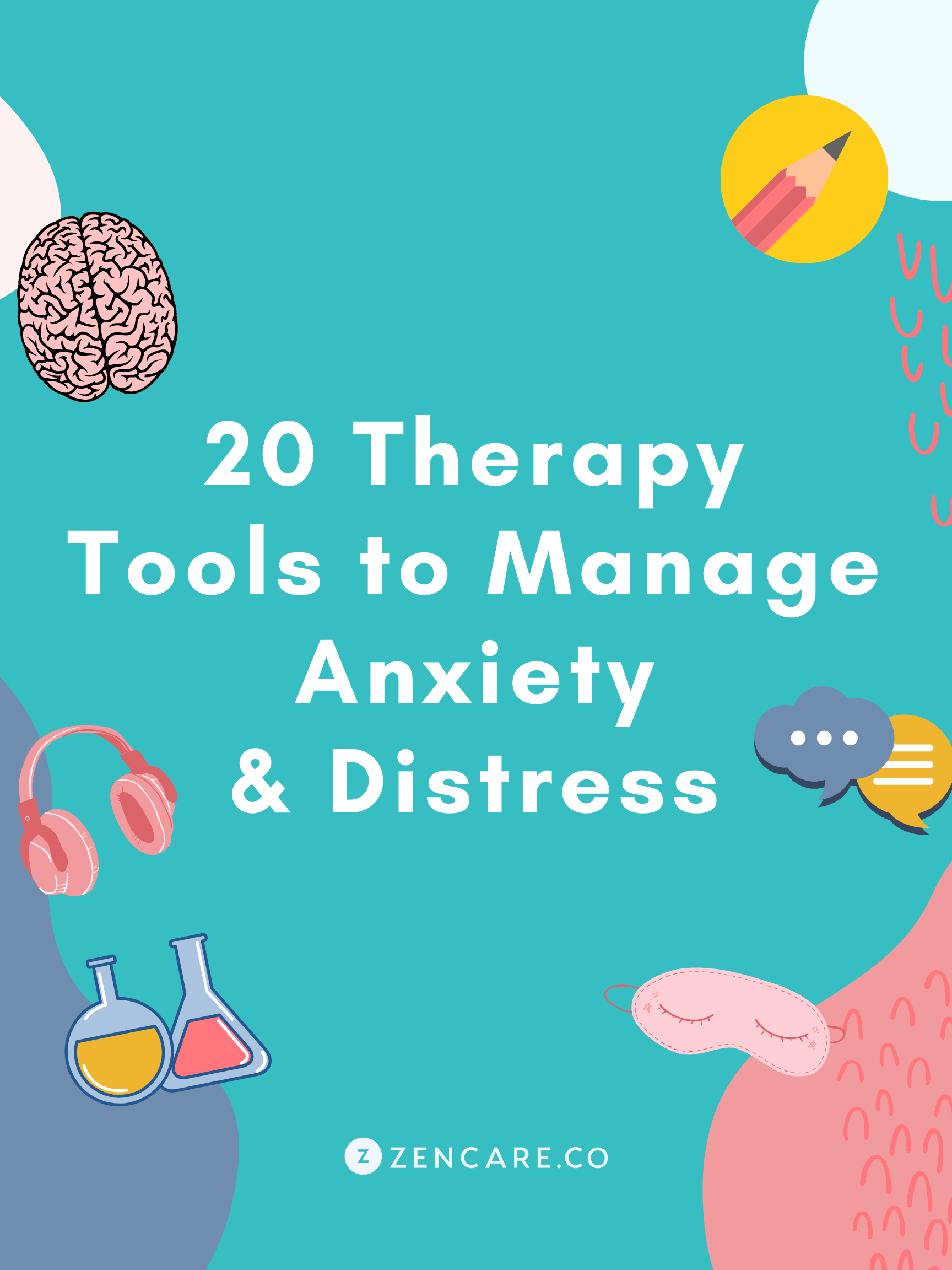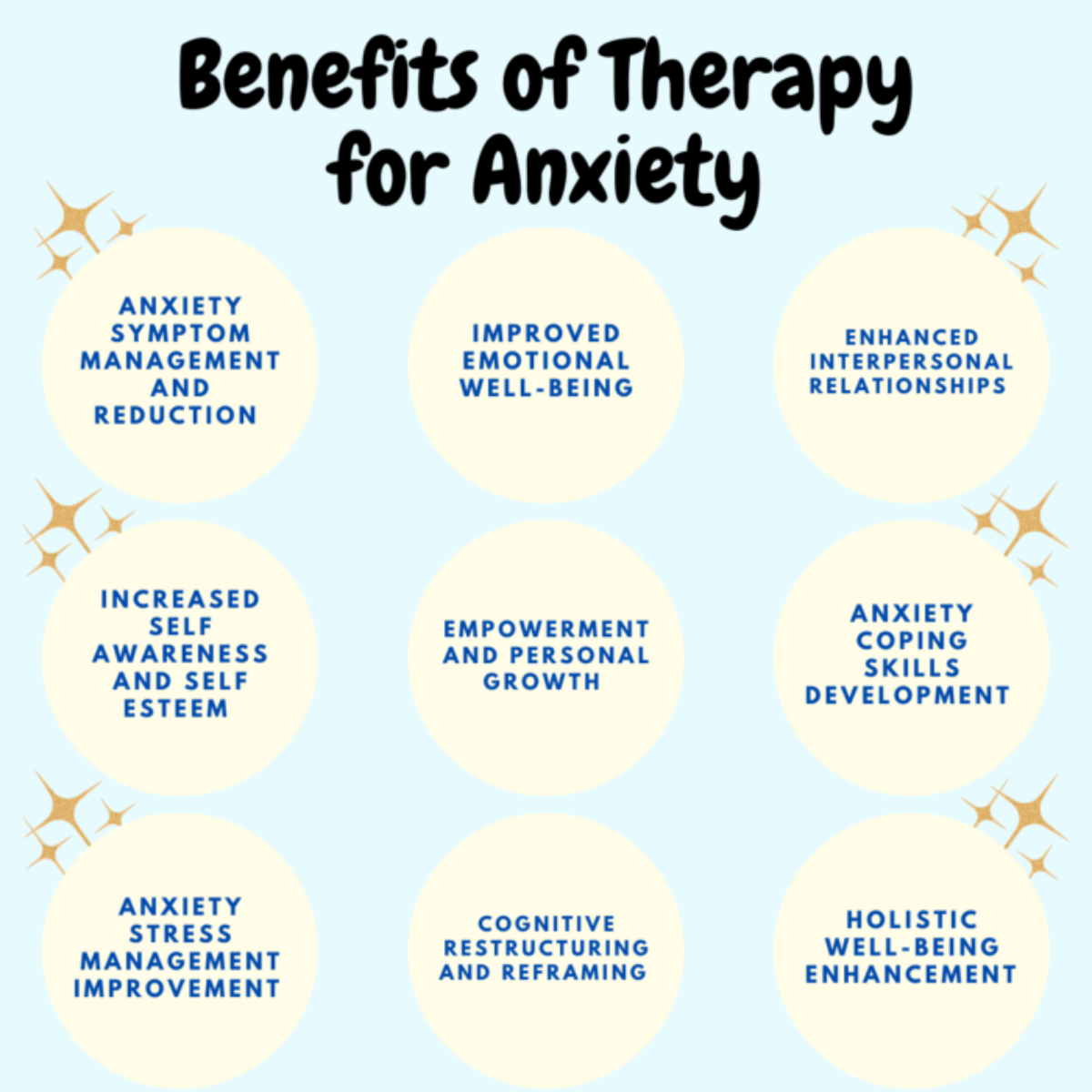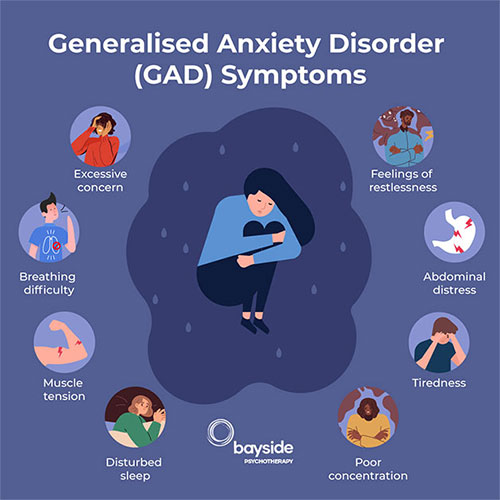Scientifically supported counselling for anxiety with compassionate guidance
Scientifically supported counselling for anxiety with compassionate guidance
Blog Article
Exploring Various Approaches in Therapy for Anxiety Disorder for Lasting Adjustment
When dealing with anxiety problems, it's crucial to check out a selection of therapy methods. Each approach offers distinct insights and tools to assist you manage your symptoms effectively. You might discover that combining techniques can yield the very best outcomes. However, recognizing the subtleties of these methods is crucial to promoting lasting change. What if the appropriate combination could release a brand-new level of psychological wellness for you?
Recognizing Anxiety Conditions: A Quick Summary
Anxiety problems, which impact numerous individuals worldwide, can significantly impact day-to-day live. You may experience frustrating feelings of worry or fret that appear uncontrollable. These feelings can bring about physical symptoms like a racing heart, sweating, and even wooziness. Usual kinds of anxiousness disorders consist of generalised anxiousness disorder, panic attack, and social anxiety condition. Each has unique signs, however they all share a tendency to disrupt your routine and relationships.Understanding the origin of your anxiety is essential. It might come from genes, brain chemistry, or life experiences. Recognizing your triggers can help you manage your feedbacks better. It is essential to keep in mind that you're not alone in this battle. Several people face comparable difficulties, and looking for aid is a solid step towards sensation much better. By discovering anxiousness disorders, you're already on the course to understanding and handling your problem better.
Cognitive-Behavioral Treatment: Challenging Unfavorable Idea Patterns
In Cognitive-Behavioral Therapy, you'll begin by recognizing the negative thought triggers that contribute to your anxiousness. You'll work on changing them with even more favorable alternatives when you identify these thoughts. Together, you'll build effective coping techniques to assist manage your stress and anxiety in daily situations.
Recognizing Adverse Idea Triggers

Recognizing the specific triggers behind your unfavorable thoughts can be essential in taking care of stress and anxiety when you run into moments of distress. Begin by taking notice of scenarios that prompt sensations of concern or anxiety. Is it a jampacked space, an upcoming deadline, or a conversation with particular individuals? Write these instances in a journal. This will certainly aid you identify patterns in your reasoning. Notification physical experiences that accompany your negative ideas, like a racing heart or rigidity in your breast. By pinpointing these triggers, you acquire understanding into what's sustaining your anxiousness. Recognizing these links is the initial step in testing those thoughts and ultimately regaining control over your psychological responses.
Changing Thoughts With Positives
Challenging negative thought patterns is a vital step in changing your attitude and minimizing anxiousness. You may commonly discover yourself caught in cycles of insecurity or disastrous thinking. Instead of allowing these ideas dictate your sensations, practice changing them with practical options or favorable affirmations. For instance, when you think, "I can't manage this," move it to, "I can take care of difficulties one action at a time." This basic modification can substantially influence your mood. Routinely identifying and countering these adverse ideas helps develop a healthier inner dialogue. Remember, it takes some time and initiative, but constantly exercising this method can result in long-term adjustment, equipping you to face stress and anxiety with restored confidence and durability.
Structure Coping Strategies With Each Other
Replacing adverse thoughts is only the start of handling stress and anxiety properly. To produce lasting change, you need to develop coping strategies that equip you. Cognitive-Behavioral Treatment (CBT) aids you identify and challenge those purposeless thought patterns. Together, you and your counselor can explore how these thoughts influence your sensations and behaviors.Start by establishing sensible techniques, like journaling or mindfulness workouts, that permit you to confront stress and anxiety head-on. When you encounter your concerns slowly, you'll discover to react differently.

Mindfulness and Acceptance-Based Approaches: Growing Present-Moment Awareness
As you browse the complexities of anxiety, including mindfulness and acceptance-based strategies can substantially boost your capability to cultivate present-moment recognition. By concentrating on the present moment, you'll find that you can observe your thoughts and feelings without judgment (Counseling services for anxiety). This technique aids you recognize your anxiousness without feeling overwhelmed by it.Engaging in mindfulness workouts, such as deep breathing, body scans, or guided meditations, permits you to ground yourself in your present experience. Acceptance-based methods encourage you to accept your emotions as opposed to fight against them. When you accept your sensations, they shed their power over you.Incorporating these practices into your daily regimen can change how you react to stress and anxiety. You'll create resilience and discover to browse stressful situations with higher simplicity. Eventually, cultivating present-moment recognition lays the structure for long lasting modification, equipping you to lead a more satisfying life
Direct Exposure Treatment: Challenging Anxieties Progressively
Exposure therapy click site aids you confront your anxieties in a steady means, making it less overwhelming. You'll find out methods to face anxiety-provoking situations action by action, while also building coping approaches to manage your responses. This strategy empowers you to take control and decrease stress and anxiety with time.
Progressive Direct Exposure Methods

When encountering stress and anxiety, progressively confronting your fears can be a powerful way to reclaim control. This method, recognized as gradual exposure, entails slowly subjecting on your own to the scenarios or items that trigger your stress and anxiety. Start with less challenging scenarios and slowly function your means as much as more difficult ones. As an example, if you're worried of public talking, you could start by talking in front of a mirror, after that progress to sharing thoughts with a buddy, and eventually attend to a tiny team. Each action helps desensitize you to the anxiety, building your self-confidence with time. Remember, it's necessary to pace yourself and celebrate small victories as you relocate through this process, strengthening your ability to manage stress and anxiety effectively.
Structure Coping Techniques
Structure efficient coping techniques is important for taking care of anxiousness, particularly as you face your worries gradually - Counseling services for anxiety. One powerful method is direct exposure therapy, where you start by encountering your worries in a controlled manner. Start with much less daunting situations and slowly work your way as much as more tough situations. This gradual exposure helps desensitize you to anxiousness sets off, making them less overwhelming.Incorporate relaxation techniques, such as deep breathing or mindfulness, to soothe your mind throughout direct exposure. Track your development, commemorating little victories along the road to increase your confidence. Bear in mind, it's alright to take your time; the goal isn't perfection but stable enhancement. By building these strategies, you'll encourage on your own to navigate stress and anxiety and accept life much more completely
Psychodynamic Therapy: Revealing Origin Reasons of Anxiousness
Psychodynamic treatment explores the unconscious mind, revealing the origin creates of your stress and anxiety. By examining your ideas, feelings, and past experiences, this approach helps you reveal underlying problems and unresolved concerns that may add to your present anxiousness. You'll deal with a specialist to investigate childhood experiences, partnerships, and psychological patterns that shape your feedbacks today.As you obtain insight into these much deeper layers of your mind, you'll start to identify how past occasions influence your present behavior. This understanding can lead to catharsis, allowing you this website to process feelings you may have suppressed.Through the restorative partnership, you can likewise identify defense systems that might have developed gradually, offering a more clear path to alter. Eventually, psychodynamic therapy furnishes you with the devices to address your anxiety at its core, advertising lasting transformation in your emotional well-being.
Integrative and All Natural Strategies: Incorporating Methods for Greater Effectiveness
Integrating numerous therapeutic strategies can improve your journey toward handling stress and anxiety much more effectively. By combining aspects from cognitive-behavioral therapy, mindfulness practices, and all natural methods, you can develop a tailored method that resolves your special requirements. You could use cognitive-behavioral strategies to test unfavorable thought patterns while including mindfulness workouts to ground on your own in the present moment.Additionally, exploring alternative practices such as yoga or reflection can promote leisure and minimize anxiousness signs and symptoms. This blend permits you to develop better self-awareness and resilience.Experimenting with these diverse methods can assist you discover what resonates most with you. Remember, it's regarding finding a synergy that functions, instead of adhering to a single method. This integrative approach not just offers immediate relief but also fosters lasting abilities for managing anxiousness, encouraging you to redeem control over your life.
The Function of Assistance Equipments: Building Strength Via Link
While it may appear that handling anxiety is a solitary trip, having a strong support group can play an important role in your strength. Surrounding on your own with empathetic buddies, household, or assistance teams produces a safe area where you can openly share your sensations and experiences. You remind on your own that you're not alone in this struggle.These relationships provide motivation and can give useful coping methods that have actually functioned for others when you connect with others. It's likewise an opportunity to acquire perspective; friends can aid you see scenarios in a different way, reducing sensations of isolation.Moreover, psychological assistance cultivates a sense of belonging, which can substantially reduce anxiousness signs. By leaning on your support group, you can build durability and tackle obstacles better. Remember, connecting for assistance suggests strength, and it can make all the difference in your trip towards managing anxiety.
Frequently Asked Concerns
What Are the Typical Symptoms of Anxiety Conditions?
You might experience uneasyness, tiredness, trouble focusing, irritability, muscle mass tension, and rest disruptions. Physical symptoms can consist of fast heartbeat, sweating, and trembling. Acknowledging these signs early can aid you look for ideal support and treatment.
How Much Time Does Therapy Generally Last for Anxiety Conditions?
Treatment for anxiousness conditions usually lasts anywhere from a few weeks to several months. It actually relies on try this your individual requirements, development, and the strategies your specialist utilizes to aid you handle your stress and anxiety efficiently.
Can Medication Be Made Use Of Along With Therapy for Anxiousness?
Yes, drug can definitely be made use of along with therapy for stress and anxiety. Integrating both approaches frequently boosts therapy effectiveness, helping you manage signs and symptoms while checking out underlying concerns via therapy (Counseling services for anxiety). Constantly consult your doctor for individualized guidance
Are There Self-Help Approaches for Handling Anxiousness?
Yes, there are several self-help approaches for handling anxiousness. You can exercise mindfulness, take part in routine workout, preserve a well balanced diet regimen, establish a routine, and use deep breathing methods to assist lower stress and anxiety symptoms successfully.
How Do I Know if I Need Specialist Help for Anxiousness?

Report this page